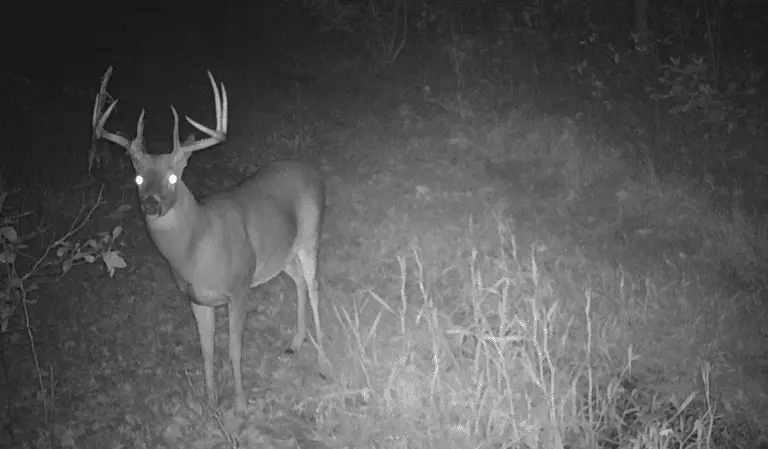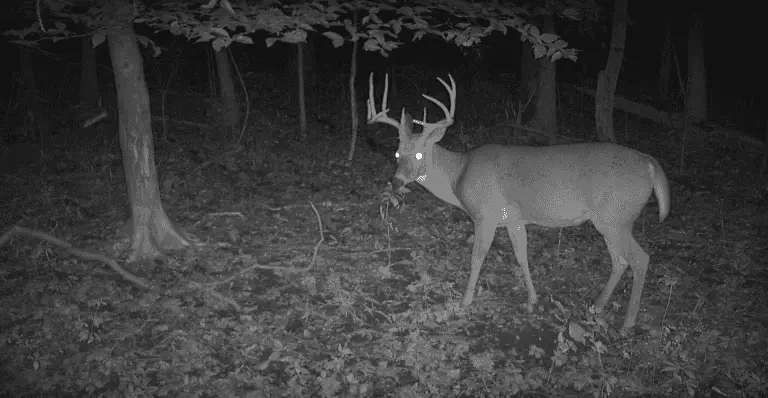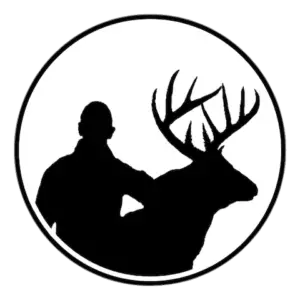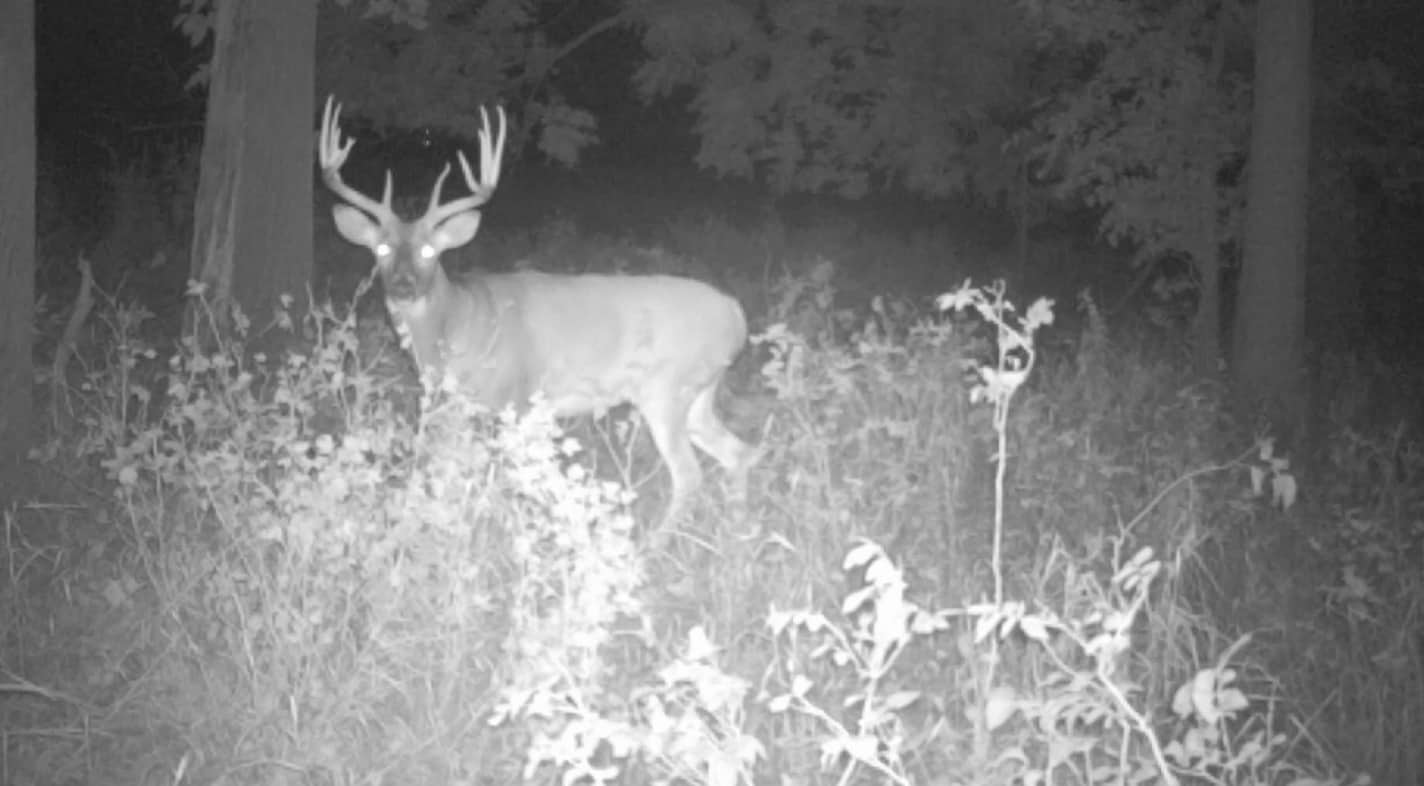In the deer hunting world, the term “nocturnal” gets thrown around quite a bit. I’m an avid hunter and I commonly hear this word gets used in different ways. Many hunters use this word a lot when talking about bucks they only see at night on their trail camera. They will say “that buck is nocturnal” as if he never moves during daylight hours. Well, that’s not necessarily true. So, lets answer the question of this article; Are deer nocturnal?
Yes, all deer are nocturnal. However, describing deer as nocturnal just means that they are active at night. This doesn’t mean they don’t move during daylight hours. Many hunters already know deer move at night. However, hunters frequently use the word “nocturnal” to suggest that a specific deer only moves when it’s dark out. Deer move at all times of day and night. Universities and state agencies have proven this over and over again through GPS radio collar research.
See when deer are most active and what time of day you should hunt.
So why do hunters keep using this word “nocturnal”? Well, maybe because there isn’t a better word to describe a deer that they never see during the day but they see at night. Describing a deer as nocturnal doesn’t mean they stay bedded down during daylight hours and only moves at night. Radio collar studies have shown that all deer move during daylight hours. However, the distance of those movements is typically less than at night which is why it can be hard to see some deer during daylight hours, especially mature bucks.
Even though some deer don’t move very much during the daytime, there are other reasons to consider when trying to figure out why some deer are only seen at night. Let’s dive into that a little bit.

What makes deer become nocturnal?
This question implies that something makes deer nocturnal, like they wouldn’t move at nighttime on their own accord. Deer would move at night regardless of what I’m about to talk about. Deer will move at all times during the day no matter what. As hunters, we just don’t want to encourage them to move more at nighttime than during the daytime. With that being said, there are 3 things that encourage deer to become more nocturnal: human pressure, cold weather, and food palatability.
1. Human Pressure
There is no doubt that humans are the number one predator of deer. We kill a lot of them every year. Deer are a prey species that have an incredible talent for survival. Deer can learn the movement patterns of humans by seeing, hearing, or smelling them. Coincidently, humans are more active during daylight hours. When deer are pressured by humans, they have the ability to learn that they can avoid us by moving more at night.
Do you wonder why you never see bucks? Bucks that are two years old or older have less tolerance for human pressure than the rest of the deer herd. Therefore, if you want to see success killing mature bucks, you need to keep them from hearing, seeing, or smelling you. If you do let deer hear, see, or smell you, then they might bed further away from your property or wait until darkness to move far distances across your land. If a deer beds further away from your property, then odds increase that they will move at night on it. They would need to move further distances to reach your land during daylight hours.
2. Cold weather
During times of cold weather, deer need to feed to stay warm and survive. Temperatures are coldest at night. Therefore, they are more likely to feed and get the energy they need during the nighttime.
3. Palatability of food
As the sun falls in the evening, thermals drop and pull moisture towards the ground. Plants become more attractive at night when moisture levels increase on the plants and they become easier to eat. Think of this like eating a salad with dressing versus eating a salad without dressing. Humans typically prefer salad with dressing more often than not because eating dry lettuce isn’t as easy to chew and swallow as eating it with dressing.

Conclusion
Deer move at all times of day and night. Referring to a deer as nocturnal should not indicate that they only move at nighttime. If you hear someone refer to a deer as nocturnal then understand that they just mean the deer is only ever seen by them at night. They could also mean to say that the deer moves on their property mostly at night. Deer can become more nocturnal if we encourage them to. Deer are prey, and they will do what they have to in order to avoid their number one predator. Humans! Deer will also increase nighttime activity during severe cold weather or when they want to eat foods with increased moisture levels from dew settling down on the earth.


